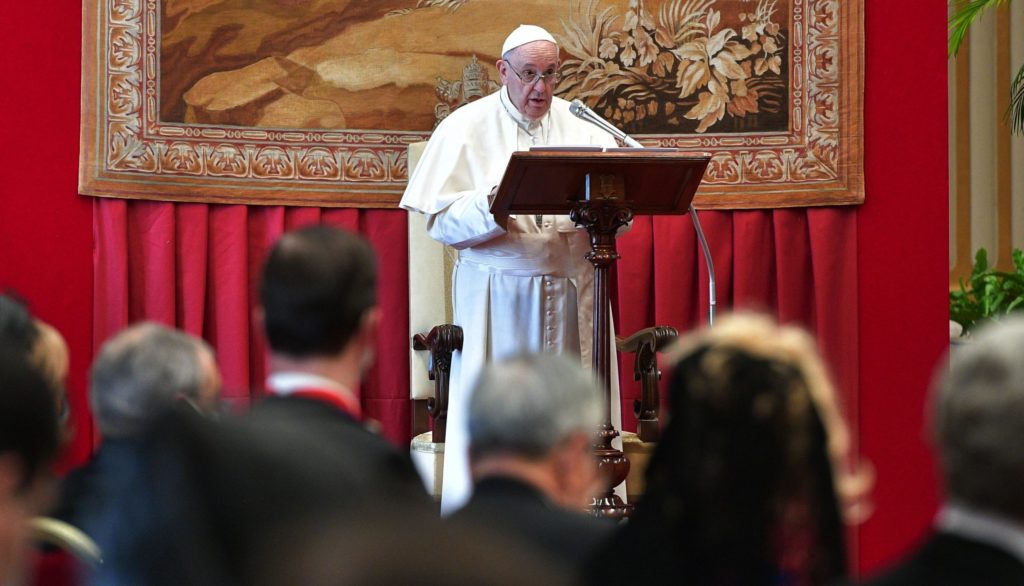In a virtual colloquium with Canadian priests, Jean-Baptiste Noé, a Parisian specialist in geopolitics, explained that the Pope can do what no other world leader can do. He was the first Pope to visit Iraq, one of the cradles of Christianity, consoling its crucified people, and on March 6 he had the third great personal meeting of his pontificate, this time with the Shiite Ayatollah Al-Sistani. Here are the keys to the diplomatic Francis.
A bridge builder
The Pontiff, a true bridge-builder, seeks, in his meetings and travels, to dialogue, to console the afflicted, to defend religious freedom and the freedom of Catholics. He wants to bring to the fore those who have fallen through the cracks of public opinion.
No other head of state could have visited today's Iraq as Francis did. It was a source of great pride for the Iraqis to be able to host him in a secure manner. Ayatollah Al-Sistani, 90 years old, does not appear publicly with anyone except Francis. Noé reiterated that Francis' meetings with the Egyptian Grand Imam Ahmed el-Tayyeb, and especially their joint signing two years ago in Abu Dhabi of the Document on human fraternityThe meeting a month ago with Al-Sistani has created a bridge to Shiite Islam.
Nuncios: the first modern diplomats
Noé, at 37, already excels in his field: he is a university professor, a prolific writer, editor-in-chief of the magazine Conflitsand director of the Institute of Geopolitics Orbis. He gave a masterful introduction to Vatican diplomacy. He explained that the nuncios were the first modern diplomats and that the Pontifical Ecclesiastical Academy was the first in the world to train diplomats.
Today only five countries do not have diplomatic relations with the Vatican, which is one of the states best informed about what is happening "on the ground" globally. He gave as an example, that in his memoirs, a former Japanese ambassador to the Vatican recalled that his posting as ambassador to the Vatican stood out in his diplomatic career, because to Rome all make pilgrimages, both the powerful and the powerless.
By dint of charisma and intelligence
As Noé explains in his book François le diplomate (Éditions Salvator, 2019), Francis, since his election eight years ago, has acted nimbly and effectively on the world stage. He has spectacularly reconciled Cuba and the USA. He visited refugees on the island of Lesbos. With no previous diplomatic experience, unlike his predecessors Pius XII, John XXIII and Paul VI, Francis has established himself with charisma and intelligence as a privileged interlocutor with world leaders.
Of course, for more than a millennium and a half, many Popes have exercised an "international" role, in so many ways. The Argentine Pope, in spite of the turbulences the Church has gone through, manages to reinforce the global influence of the Vatican. His "foreign policy" pursues an evangelizing mission with other means.
Neutral, but not impartial diplomacy
Noé defended the controversial and secretive Interim Agreement between the Holy See and China On the appointment of bishops (signed in 2018 and extended in 2020):"très mauvais mais très nécessaire". Why? Because the Vatican is betting that it can "loosen the vice" of religious persecution in central China. The Agreement has not solved the problems, as Chinese President Xi Jinping mocks the Pope. But better something bad than nothing, diplomacy being very limited with a tyrannical government.
The diplomacy of the Holy See is neutral but not impartial. It seeks peace. For example, John Paul II avoided a war between Argentina and Chile over a border conflict, and, much closer in time, Francis sought peace, naturally and neutrally, in a recent war: the Second High Karabakh War (September-November 2020) between Azerbaijan and Armenia.









